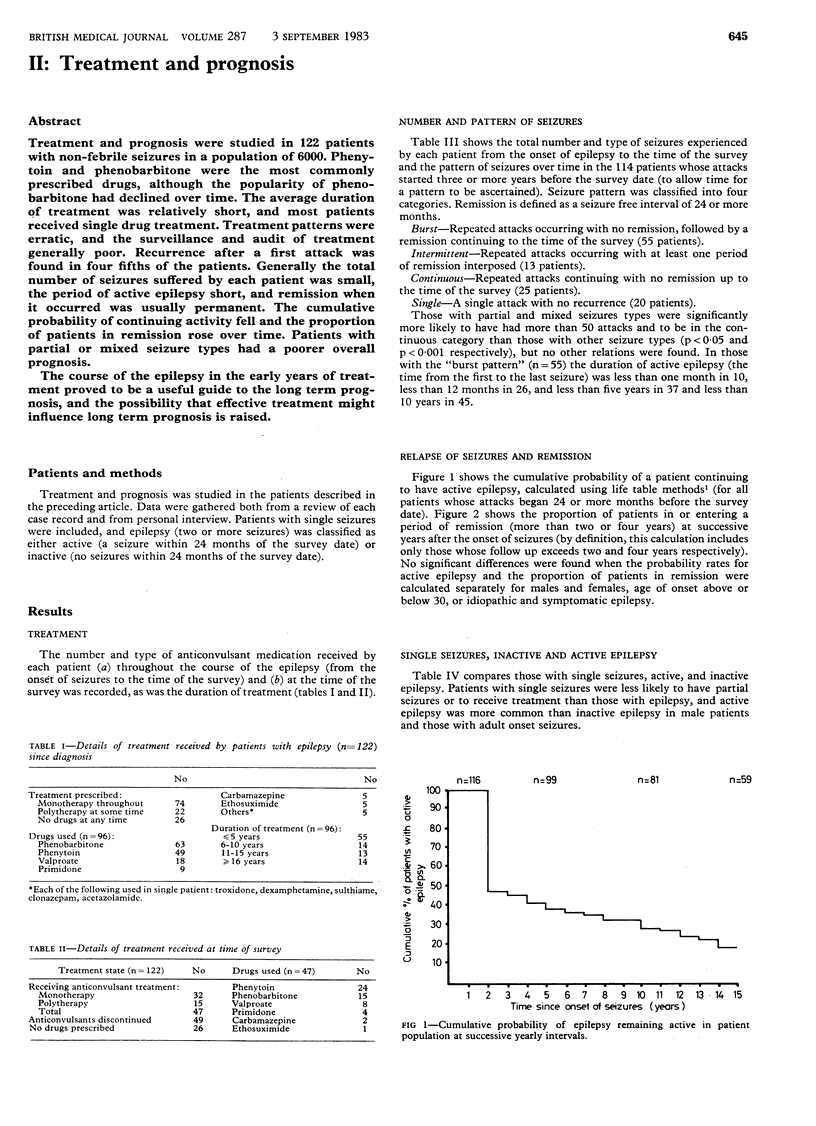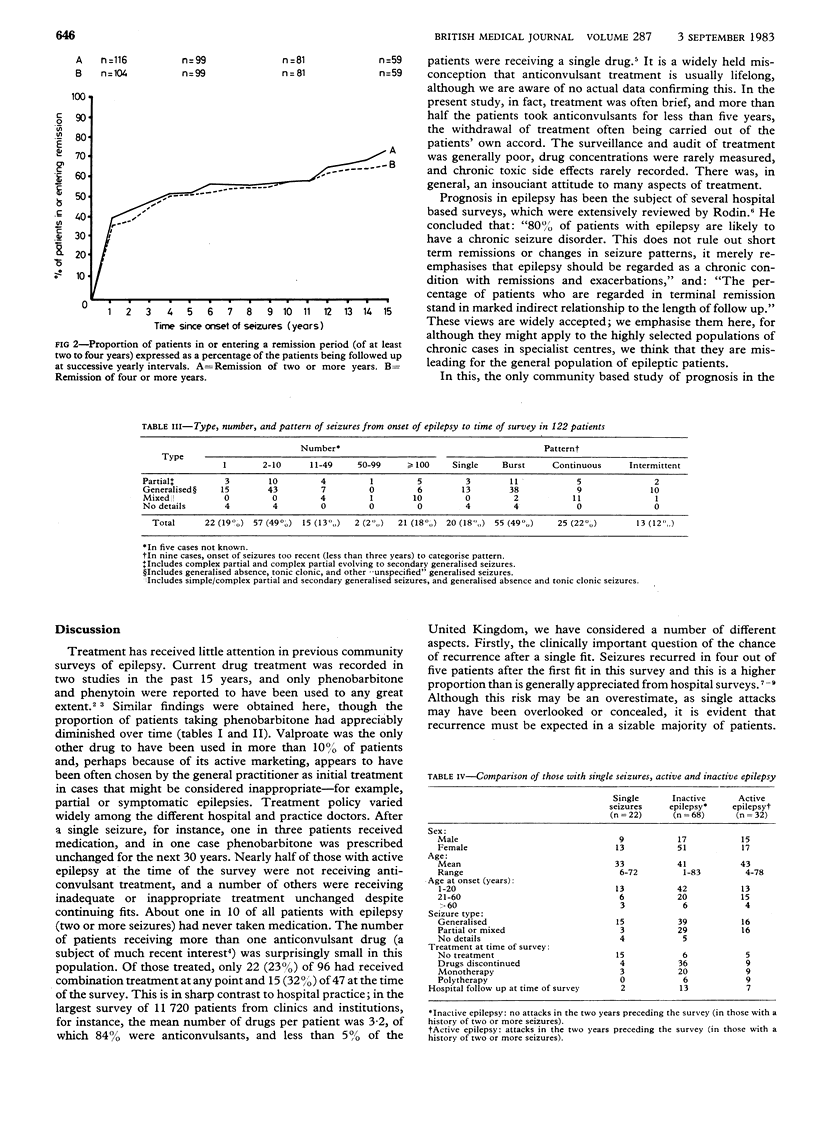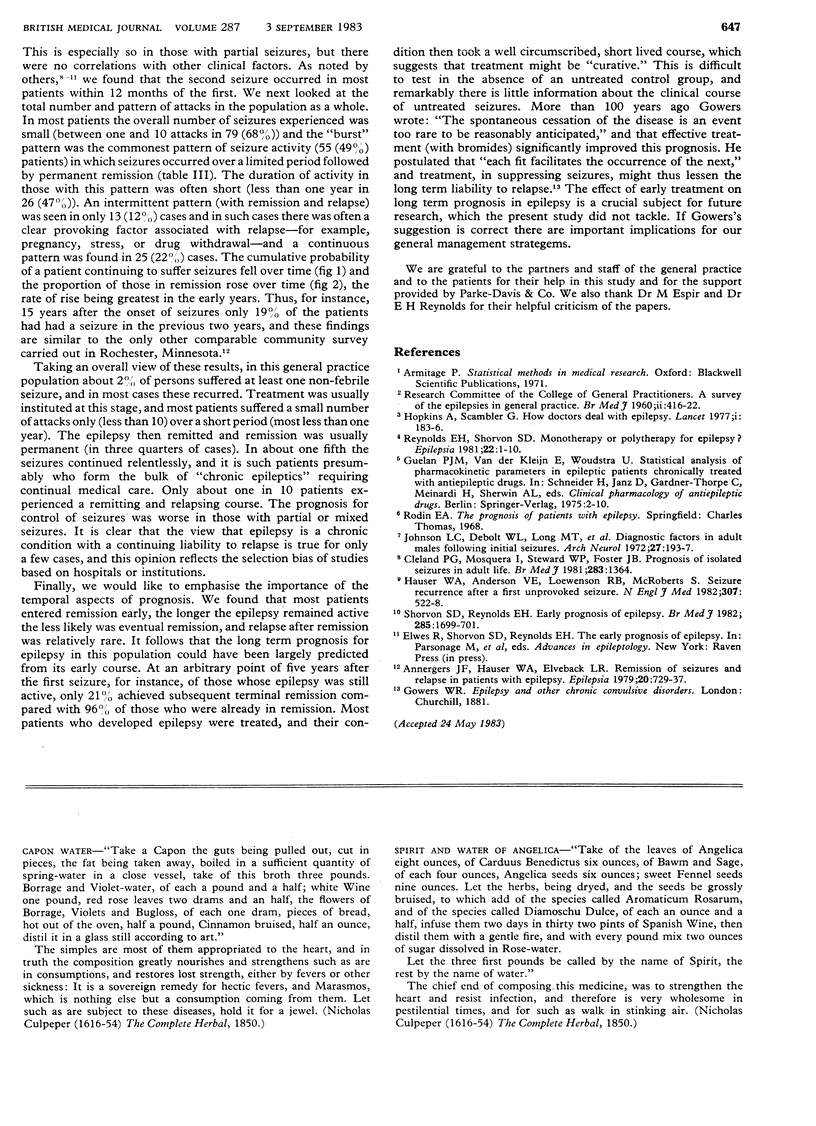Abstract
Treatment and prognosis were studied in 122 patients with non-febrile seizures in a population of 6000. Phenytoin and phenobarbitone were the most commonly prescribed drugs, although the popularity of phenobarbitone had declined over time. The average duration of treatment was relatively short, and most patients received single drug treatment. Treatment patterns were erratic, and the surveillance and audit of treatment generally poor. Recurrence after a first attack was found in four fifths of the patients. Generally the total number of seizures suffered by each patient was small, the period of active epilepsy short, and remission when it occurred was usually permanent. The cumulative probability of continuing activity fell and the proportion of patients in remission rose over time. Patients with partial or mixed seizure types had a poorer overall prognosis. The course of the epilepsy in the early years of treatment proved to be a useful guide to the long term prognosis, and the possibility that effective treatment might influence long term prognosis is raised.
Full text
PDF


Selected References
These references are in PubMed. This may not be the complete list of references from this article.
- Annegers J. F., Hauser W. A., Elveback L. R. Remission of seizures and relapse in patients with epilepsy. Epilepsia. 1979 Dec;20(6):729–737. doi: 10.1111/j.1528-1157.1979.tb04857.x. [DOI] [PubMed] [Google Scholar]
- Cleland P. G., Mosquera I., Steward W. P., Foster J. B. Prognosis of isolated seizures in adult life. Br Med J (Clin Res Ed) 1981 Nov 21;283(6303):1364–1364. doi: 10.1136/bmj.283.6303.1364. [DOI] [PMC free article] [PubMed] [Google Scholar]
- Hauser W. A., Anderson V. E., Loewenson R. B., McRoberts S. M. Seizure recurrence after a first unprovoked seizure. N Engl J Med. 1982 Aug 26;307(9):522–528. doi: 10.1056/NEJM198208263070903. [DOI] [PubMed] [Google Scholar]
- Hopkins A., Scambler G. How doctors deal with epilepsy. Lancet. 1977 Jan 22;1(8004):183–186. doi: 10.1016/s0140-6736(77)91777-9. [DOI] [PubMed] [Google Scholar]
- Johnson L. C., DeBolt W. L., Long M. T., Ross J. J., Sassin J. F., Arthur R. J., Walter R. D. Diagnostic factors in adult males following initial seizures. A three-year follow-up. Arch Neurol. 1972 Sep;27(3):193–197. doi: 10.1001/archneur.1972.00490150001001. [DOI] [PubMed] [Google Scholar]
- Reynolds E. H., Shorvon S. D. Monotherapy or polytherapy for epilepsy? Epilepsia. 1981 Feb;22(1):1–10. doi: 10.1111/j.1528-1157.1981.tb04327.x. [DOI] [PubMed] [Google Scholar]
- Shorvon S. D., Reynolds E. H. Early prognosis of epilepsy. Br Med J (Clin Res Ed) 1982 Dec 11;285(6356):1699–1701. doi: 10.1136/bmj.285.6356.1699. [DOI] [PMC free article] [PubMed] [Google Scholar]


